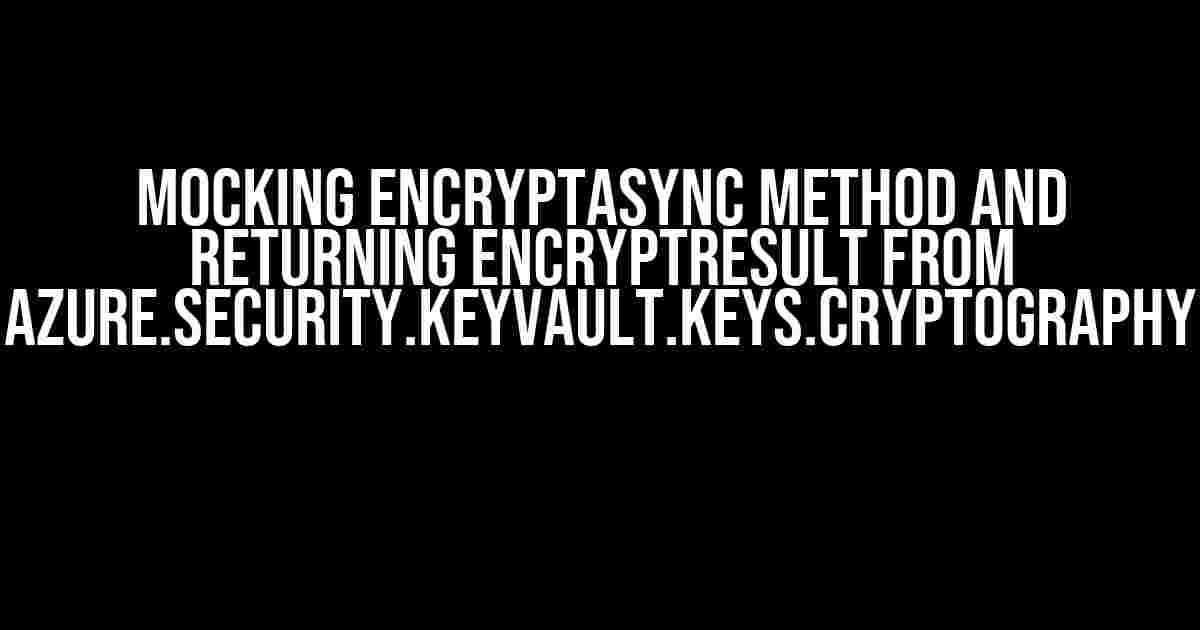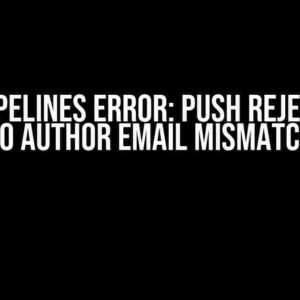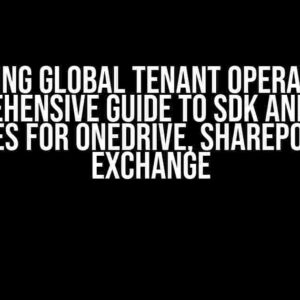In this article, we will explore how to mock the EncryptAsync method and return an EncryptResult from Azure.Security.KeyVault.Keys.Cryptography. This is particularly useful when you want to unit test your code that interacts with Azure Key Vault without actually calling the Key Vault service.
What is Azure.Security.KeyVault.Keys.Cryptography?
Azure.Security.KeyVault.Keys.Cryptography is a .NET namespace that provides cryptographic functionality for Azure Key Vault. It enables you to perform encryption, decryption, signing, and verification operations using the keys stored in Azure Key Vault.
The EncryptAsync Method
The EncryptAsync method is a part of the Azure.Security.KeyVault.Keys.Cryptography namespace that encrypts data using a key stored in Azure Key Vault. It takes a plaintext byte array as input and returns an EncryptResult object, which contains the encrypted data and other metadata.
Why Mock the EncryptAsync Method?
There are several reasons why you might want to mock the EncryptAsync method:
- Unit testing: You want to isolate the dependencies of your code and test its logic without actually calling the Key Vault service.
- Performance testing: You want to test the performance of your code without incurring the latency and cost of calling the Key Vault service.
- CI/CD pipelines: You want to run automated tests in your CI/CD pipelines without relying on external dependencies.
Mocking EncryptAsync Method using Moq
To mock the EncryptAsync method, we can use a popular .NET mocking library called Moq. Here’s an example code snippet:
using Azure.Security.KeyVault.Keys.Cryptography;
using Moq;
using System.Threading.Tasks;
public class MockEncryptAsyncExample
{
public async Task MockEncryptAsync()
{
// Create a mock instance of the CryptographyClient
var cryptographyClientMock = new Mock<CryptographyClient>();
// Define the behavior of the EncryptAsync method
cryptographyClientMock.Setup(c => c.EncryptAsync(It.IsAny<byte[]>()))
.ReturnsAsync(new EncryptResult(new byte[] { 1, 2, 3 }));
// Create an instance of the class that uses the CryptographyClient
var myClass = new MyClass(cryptographyClientMock.Object);
// Call the method that uses the EncryptAsync method
var result = await myClass.DoSomething();
// Assert the result
Assert.IsNotNull(result);
}
}
In this example, we create a mock instance of the CryptographyClient using Moq, and define the behavior of the EncryptAsync method to return an EncryptResult object with a mocked encrypted data.
Conclusion
In this article, we demonstrated how to mock the EncryptAsync method and return an EncryptResult from Azure.Security.KeyVault.Keys.Cryptography using Moq. By mocking the EncryptAsync method, you can write more efficient and reliable unit tests for your code that interacts with Azure Key Vault.
Frequently Asked Questions
Get ready to decrypt the mysteries of the Mock EncryptAsync method and return EncryptResult from Azure.Security.KeyVault.Keys.Cryptography!
What is the purpose of the Mock EncryptAsync method?
The Mock EncryptAsync method is a testing tool that simulates the encryption process, allowing developers to test their code without actually encrypting data. This ensures that their encryption logic is correct and works as expected, without compromising security.
What is the return type of the EncryptAsync method?
The EncryptAsync method returns an EncryptResult object, which contains the encrypted data, along with additional information such as the encryption algorithm used and the authentication tag.
Can I use the Mock EncryptAsync method in production code?
No, the Mock EncryptAsync method should only be used in testing and development environments. It is not intended for use in production code, as it does not provide actual encryption and could compromise the security of your data.
How does the EncryptAsync method handle errors?
The EncryptAsync method throws a KeyVaultErrorException if an error occurs during the encryption process. This exception provides detailed information about the error, allowing developers to handle and troubleshoot issues effectively.
Is the Mock EncryptAsync method thread-safe?
Yes, the Mock EncryptAsync method is thread-safe, allowing multiple threads to call the method simultaneously without fear of data corruption or other issues.




